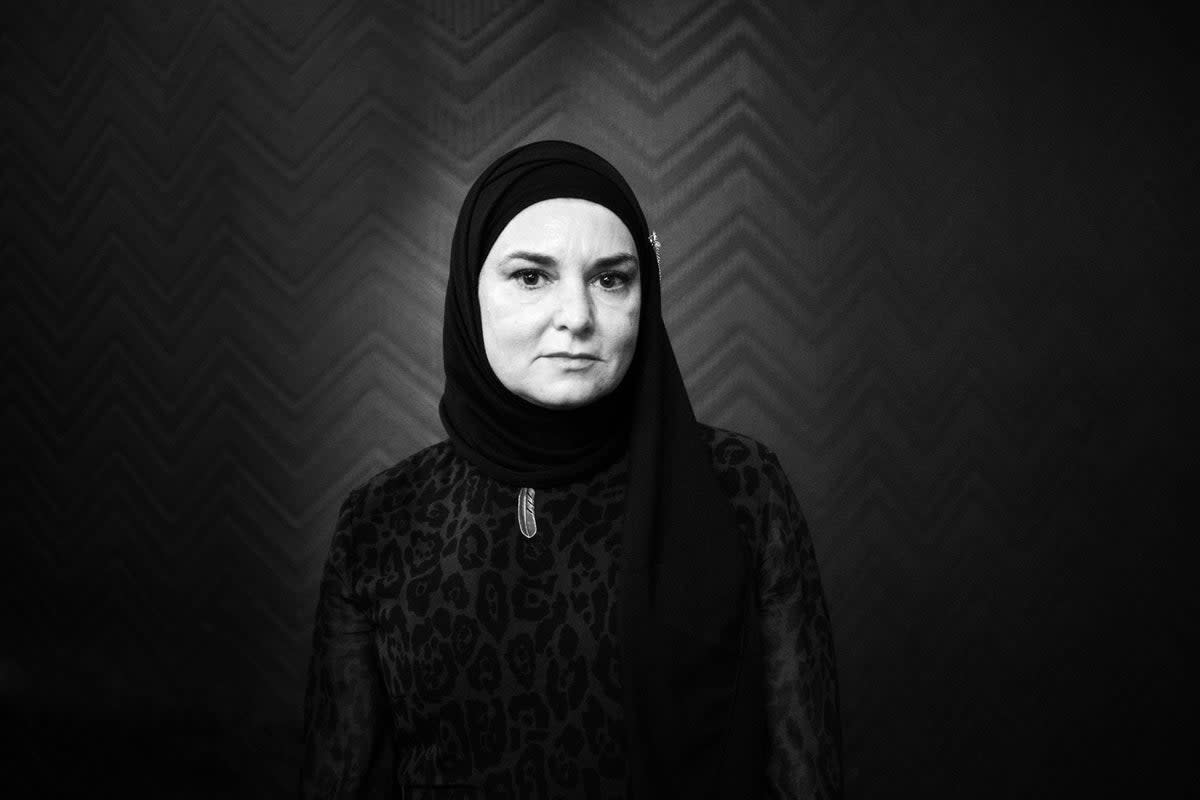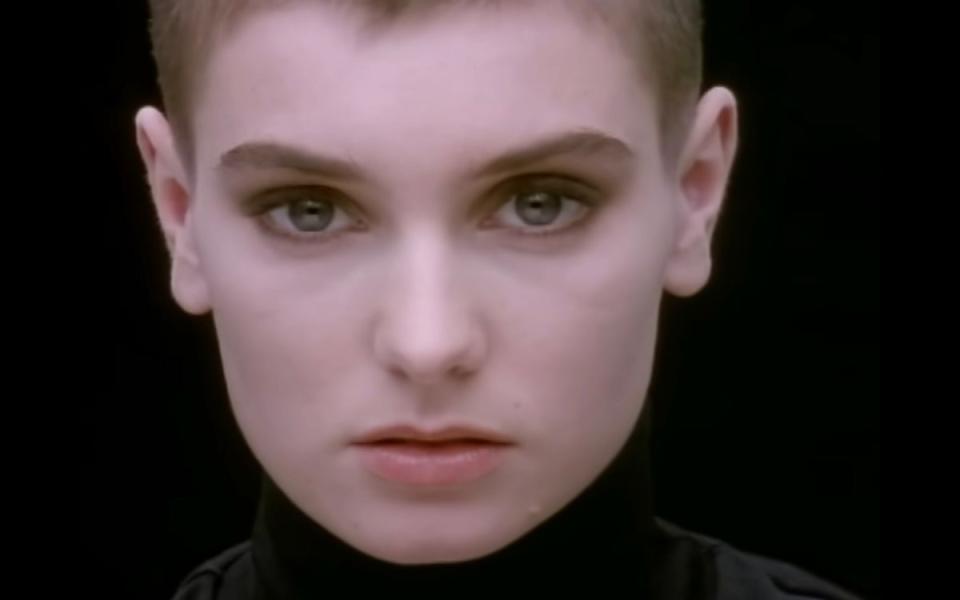Sinead O’Connor, the Irish artist who put her pain, and the pain of others, into song

Hearing the awful news of Sinead O’Connor’s death (aged just 56) will transport many of us back to her culture-shocking appearance on Top of the Pops in 1990. Surrounded by a spellbound sea of young women in stone washed denim with big blonde hair, she stood there in a black polo neck singing “Nothing Compares 2 U”. Alone, but for that drum beat and the dry ice that surrounded her.
I don’t think the teatime nation had ever seen so much vulnerability expressed with such unflinching confrontation. That elfin face and those huge, doe-lashed eyes were at compelling odds with the shaved head, defiant jaw and perfectly controlled but desolate gaze. The voice was strangely soft, yet O’Connor reached deep into the awkward corners of every consonant like she was gouging at scabs. There was a scowl and a punch thrown as she ripped into the chorus.
She was singing a love song, written by Prince in 1985. The same year O’Connor’s mother died in a car accident when she was 18. But what the message amounted to was: “I’m in unbearable pain, and I need you f***ers to know the width, depth and breadth of it so we can carry it together.” Her past – removed from the custody of a violent mother with, she felt, “no capacity for love” – was held aloft like a coffin. A TV audience of pall bearers was unsteady and uneven beneath the load.
More than three decades on, we’ve become more familiar with the sight and sound of people expressing trauma. But back then, O’Connor’s demeanour was very new. Thrilling and uncomfortable. For context: 1990 was the year Jimmy Savile received his knighthood. Those in power were not yet ready to hear what his victims had to say and they knew it. The UK could only – and just about, because there were complaints – tolerate a victim statement if it came safely couched in a love song, and the cartoon chart position captioned underneath.
At 15, I was thrilled, frightened and most of all curious about O’Connor. I had no time for the rock magazine-reading boys at school, who sneered that her success was all down to Prince’s genius. This weird woman had something. But what? I got the album on cassette, and while nothing quite matched up to the discombobulating experience of watching her sing, I relished the way her voice could stretch from a snarl to a sigh in the space of a syllable. How she could swallow rage or let it rampage at will. I’d later realise that her supreme mastery of emotion in song was at odds with what appeared to be a powerlessness to control it in her real life.
For anyone interested in O’Connor’s biography, I recommend Kathryn Ferguson’s excellent documentary, Nothing Compares (2022). Through it, you see the young O’Connor struggling against the sexist, abuse-concealing Catholic church, forced to live in the garden, acknowledging that music was “my therapy, I just wanted to scream”.
I remember an interview in which she described herself as an eight-year-old child, removed from her mother and lying on her bed all day “howling like a wolf”. Even at her most wounded and powerless, separated from her uncaring pack, O’Connor envisaged herself as a creature who could bite back.
She continued to walk alone, outwardly fearless although often fearful. She continued to speak out controversially – and as a feminist – on politics, religion and sexuality, while wandering into a commercial wilderness with albums of reggae covers and sometimes melody-shy ponderings.

There were four marriages, four children, reported suicide attempts and a bipolar diagnosis. She had relationships with women as well as men. She was ordained into the Tridentine priesthood and, in 2018, converted to Islam. When her son, Shane, died by suicide aged 17 last year, she gave him a Hindu send-off.
So she was messy. Confused. But I don’t think she was capable of telling a lie. In between the mess was an extraordinary, smart, but damaged human searching fiercely for a truth to cling to. Not to mention the many great records she made along the way. I get teased for it, but I remain a fan of her cover of Elton John’s “Sacrifice”. I think O’Connor does something beyond magic, over the harp, with the final repetitions of “I gave my heart”. It’s accusatory, submissive, questioning and answering. Everything she was. I also recommend checking out the 2012 album How About I Be Me (And You Be You), on which she seemed to pull back focus and sing with joy and inspiring intensity: “I don’t want to waste the life God gave me / And I don’t think that it’s too late to save me.”
In the end, though, O’Connor seemed to believe she was unsaveable. In a recent social media post she spoke of “living as undead night creature” since Shane’s death. She described her son as “the love of my life, the lamp of my soul”.
As somebody raised by a mother with mental health struggles, I hope her other children know she probably wasn’t in her right mind when she said that. I hope they understand that loss tilts the perspective like nothing else. I’m sure on a good day she loved you all and wouldn’t wish the pain you’re now feeling on any of you. Because Sinead O’Connor was a singer who could alleviate any listener’s pain by singing it so clearly for them. She was a powerful force for change in a culture that, at the time, refused to hear people’s trauma. It’s just so incredibly sad that she never managed to alleviate her own for much longer than it took to sing it.
If you are experiencing feelings of distress, or are struggling to cope, you can speak to the Samaritans, in confidence, on 116 123 (UK and ROI), email jo@samaritans.org, or visit the Samaritans website to find details of your nearest branch.
If you are based in the USA, and you or someone you know needs mental health assistance right now, call the National Suicide Prevention Helpline on 1-800-273-TALK (8255). This is a free, confidential crisis hotline that is available to everyone 24 hours a day, seven days a week.
If you are in another country, you can go to www.befrienders.org to find a helpline near you.

